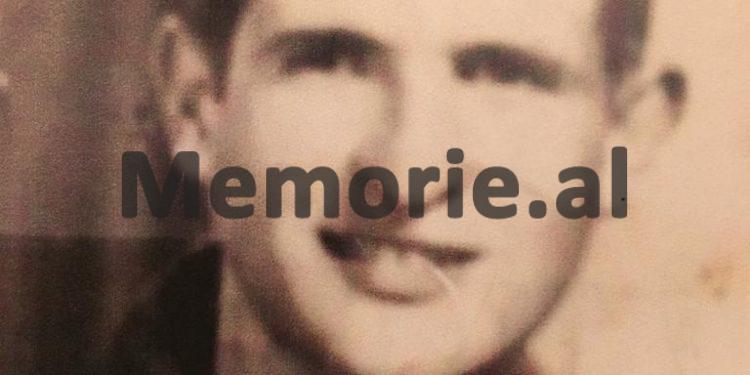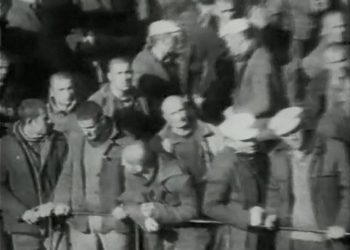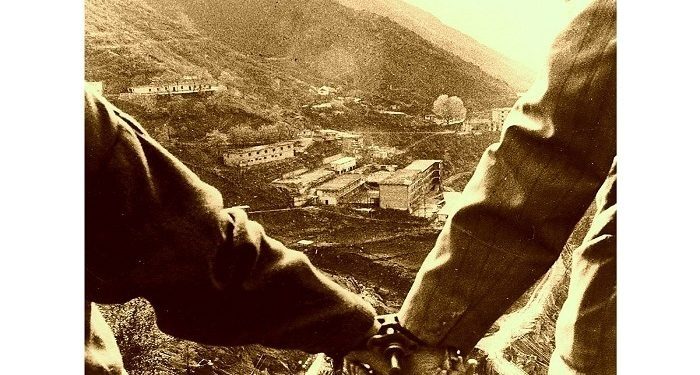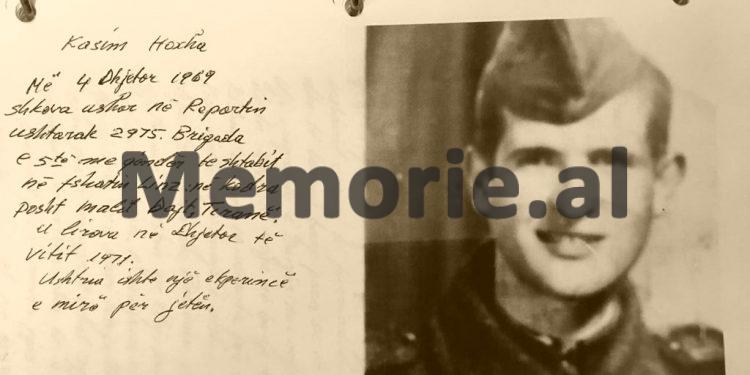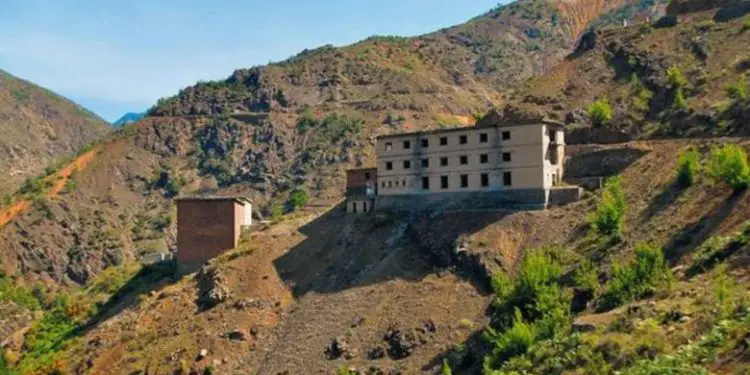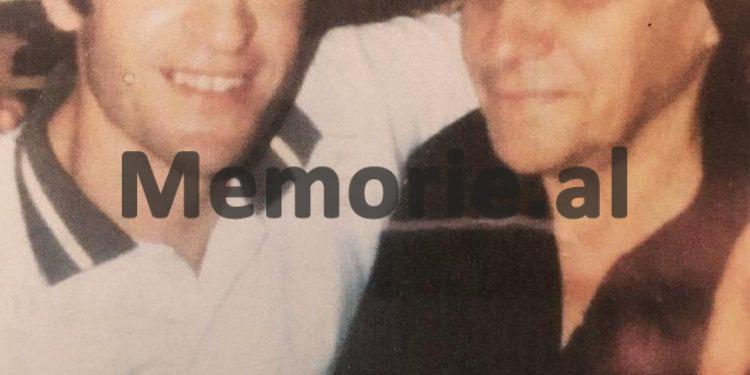Dashnor Kaloçi
Part of thirteen
Memorie.al publishes some parts of the voluminous autobiographical book in manuscript “Beautiful land, ugly people” (memories from hell) by the author, Kasem Hoxha, originally from the village of Markat in Saranda and living in the USA since 1985, when he fled Albania after suffering ten years in the prisons of Enver Hoxha’s communist regime. The whole sad and painful story of Kaso Hoxha, from the life and hard work in his village in the southernmost part of the country, the dissatisfaction with the regime and the first poems of a political nature, how they fell into the hands of the State Security and who were his relatives who spied on him, the arrest in the office of the Chairman of the People’s Council of Markat village, by the State Security on June 21, 1973, the investigation in the Saranda Branch of Internal Affairs, the trial against him and the sentence with 10 years in prison for “agitation and propaganda”, staying in “Kaushin” of Tirana (Ward 313), and the prisoners he found there, being sent to Spaç and working in that camp with criminal and “soft” police officers, the accomplices of description of their “portraits” with positive and negative sides, release from prison and return to the countryside, escape to Greece and stay in the Lavros camp, gaining political asylum in the USA, correspondence with Amnesty International, e London branch, inf information with the data he sent to the prisoners of Spaç and the communist regime in Albania, to the creation of a new family and life and work in that distant place with the Cham community divided by the intrigues of the people of the State Security from Albania operating there.
Excerpts from the manuscript book, “Beautiful land, ugly people“, (memories from hell) of the author, Kasem Hoxha, sent by him exclusively for Memorie.al
Prologue
Dear readers!
Do not pay attention to the title I am presenting to you, I mean, if you are not patient to read this collection of memoirs, if you want to forgive the author, that his style is pale, uninspired before this drama of great, of my people, of my martyred nation.
My characters are not created by my imagination, but are real people, they are your brothers, your fathers, your relatives. The events are not fictional, but real and lived. You will convince yourself, only after reading this summary with memories. You will find something from your life, something real from the lives of your fathers, your mothers, your brothers, how they suffered and how they died.
I wrote this collection of memories about the legacy left to me by my friends, for the world to learn the truth, how innocent people were tortured, how they suffered, how they died, in the camps and prisons of the executioner, Enver Hoxha!
I go with the hope that any reader, Albanian or foreign, is not left with hatred, from criticism, beating opposing opinions, as it is the best way to find the truth. The title of the book, “Beautiful land, ugly people”, will anger the reader, but in the end, I will conclude that I have the right to call it “The 45-year era of the satanic communist regime of Enver Hoxha”: Ugly.
I, alas, for the misfortune I had, saw and lived the great drama that happened before my eyes. I am neither a poet nor a orator, I will need hard work to escape the literary mistakes in this historical book, which can inspire future poets and writers, on the tragedy of our time, of the darkest time of my nation !
Ladies and Gentlemen, I wish you all freedom and peace…!
Kaso Hoxha.
Llavrio, Greece 1985
Continued from the previous issue
It was 6 o’clock in the evening and at this time the door opened and three prisoners entered. The first, a 20-year-old boy, stocky wearing a soldier’s uniform, all vitality, energetic, but slightly weakened by hunger and dungeon torture. Excessively pale face indicated that he had time without seeing the sun. This one greets first. “Hello friends,” he said, glancing all over “Kaushi” wrapped in tobacco smoke.
“Gone are the days of good fortune and good fortune,” some replied.
– “Where do you come from”, asked some others who were interested in any of their patriots. “From Shkodra,” replied the soldier.
“Are you from Shkodra,” said Hajdari, a spy they had brought from Spaci, as a witness for his comrades arrested several months ago.
– “What do they call you”, Hajdari asked?
“Marjan,” the soldier replied.
“Ahh yes, you have an uncle in Spaç”, Hajdari asked.
– “Yes, do you know him”?
“As far as I know, I am also from Shkodra,” he told her.
Marjan’s uncle had been arrested with the latter group, and was therefore here to prove his charge. Marjani did not know what was happening in Spaç. After the soldier, came a short old man who looked like he had just turned 75, and with broken skeleton glasses and tied with white thread.
His clothes were patched by an untrained hand with such works and indicated a great fukarallëk. In the way it was presented, it showed that we were dealing with a pure man. He was holding the hand of a third person, who seemed to have gone through a psychic trauma. The old man, without losing the toruan at all, as if he had become accustomed to prison life, pulling his sick friend by the hand, took his place between me and Bac Sadiku. He gently shook my hand.
“How are you, friend?” He addressed Baca, in a low voice.
“As you can see, there is no worse place to go,” Bac Sadiku replied, and the old man’s wrinkled face took on a sign of regret.
“Yes, friend, how are you?” He remarked to me.
“Glory to God, I live in hope,” I said to the old man still unknown to me.
“What’s your name?” He asked me.
– “Kasem.”
-“Where are you from”?
– “From the South, from the villages of Saranda. What do you call your uncle”?
– “Mëhill Tërshana and I am from Lezha”.
“Do you have anything to do with Ernest Troshani”, I asked Uncle Mehilli, about this prisoner of Spaç?
– “I have nothing, but I believe that this is also from Tërshanët”.
“How many have you been convicted of?” I asked.
– “Do not ask at all, that I owe Enver Hoxha, as I have very few years left to live”.
-” Gone are Uncle Michael, and don’t worry. “Because it was God’s will for us to suffer,” I consoled him.
He noticed me for the words I said to him and demanded that with his gaze he penetrate into the interior of my soul.
– “Twice my Lord began my son, because the younger generation turned their backs on God and faith”!
– “It’s not just the beginning, Uncle Mill, but I live by his faith. His strength and greatness are seen in everything on the globe and in the infinity of this universe. God created everything from the universal dough that is the subject. of all phenomena in infinity “.
Uncle Mëhilli listened to me attentively and remembered that I was a provocateur. I saw him hesitant to discuss the existence of God, and I did not know that Uncle Michael had graduated in Theology at the Vatican. I learned this later. I made sure I was not one of those people who had rejected God. Despite being born and raised in a family where religion was not preached. But the mother, and the father, mentioned the word God at every moment. I told Uncle Mehill that: my worldview was forged in the cold dungeons of Spaç, which became my universities.
My friends who suffered there, were my professors. I was given the opportunity to study Theology, Philology, Natural Sciences, History and Literature. I knew the History of the World and the Balkans very well. I learned why our nation to this day is fragmented and divided by three different religions. And I am one of those who want to return to the first faith that Albanians had. Our people must turn their eyes away from the civilized world to preserve its existence. Otherwise we will be assimilated by neighboring peoples!
My conversations with Uncle Mehill, now with Father Mehill, who gave me his wise blessing. “You will live in peace, because you are not alone. God is with you. After a few days I parted with Padre Mëhilli, because he escaped to Ballsh prison, while I went to Spaç. This was an ugly place that was slowly shaking our lives.
My friends, as soon as they learned that I had returned from the prison hospital, came to visit me. I had earned their respect and all of them already knew me and sadly expressed regret for my health condition. They made sacrifices by taking their food out of their mouths and giving it to me as I was slowly giving up the ghost.
As soon as Xhelal Çami left, Rajmond Sejko and Nazmi Veshi came. I do not forget the help of my friend Hasan Bajo. He was close at all times. I was impressed by my friend from Janjari, Muskli Mehmeti. This wise and hardworking man, when I returned at night from the second shift, gave me his ration of food, to bring me back to life again. Muscle was the man who had earned all my respect for his wisdom. He did not talk much, but the tragedy of his life was so similar to mine.
This unfortunate man had left his wife with two children. He was sentenced to 20 years in prison, in completely ordinary circumstances. His father-in-law provoked him and he could not restrain himself, but shot him with a scythe (a working tool for cutting bushes) somewhere in the body. He, thinking that for the crime he committed, would go to prison, fled to Greece. Muskliu was not politically trained, but simply a peasant farmer did not ask the Greek authorities for political asylum, but was said to have hit his father-in-law for ordinary matters.
According to international law, a foreign country could not grant you asylum for the act he had committed, but they returned it, handing it over to the Albanian police as an “ordinary criminal”. So, he was severely punished even though the victim did not die. Now he was suffering in prison with me with no hope for the future. I did my best to keep his fervent soul, the light of freedom, burning.
My conversations with him were all optimism for the future. I told him that after the political events in the country and in the world, they spoke in our favor. Muscle was overjoyed when I told him that communism has its days numbered. We had mutual trust in each other. The year 1980 found me more tired, weaker, and sicker. My friend Qaniu had long since been arrested and was lying in Burrel. Again, I missed his presence.
Dr. Nuri Sallaku had taken over the position of prison doctor. To get that post you had to be …?! After I left the hospital and came to Spaç, I gained the right to stop working in the mine. In this way, he was introduced to prisoners who were called “unemployed”. Here I met Nuri Sallaku, in the game of chess and we spent a lot of time together. He was a doctor and I informed him about my health condition. He told me that: “it is possible that they will give me the position of doctor here in prison”.
He promised me that if he took that post, he would help me with a strong antibiotic cure. And if given the chance, he would send me to the prison hospital, with a diagnosis of possible “bronchiectasis.” When Dr. Nuri was appointed, I was very happy. He immediately called me to the Prison Nursing and hospitalized me for a few days making me a long report, which would take him to the military doctor. The latter would approve in writing my hospitalization in Nursing, where there were better conditions and food.
For this humane gesture and for this help, I am very grateful to Dr. Nuri. By the late 1980’s, I was rushed to a prison hospital, where I had a fever and a fever that sometimes reached 40 degrees Fahrenheit [40 ° C]! This time at the prison hospital, we did a series of different tests. Radiography, blood, after using a variety of antibiotics. I can say they did experiments on my body! I was sent here in more than 5-6 weeks. I wrote a letter to my mother, where I told the truth and I do not know how long I will be alive! “But if you can, come here to the prison hospital to see me. And if I am not here either, come to the prison of Tirana, to escape from the long road of Spaç”, I wrote to my mother in that letter, among other things. I was taken from the prison hospital at the end of April and the military doctor gave me a certificate – coming out with a diagnosis of ‘chronic bronchitis’. I dedicate this good to Dr. Nuri, who made the impossible possible!
Do you know me dad?
The “prison” full of prisoners resembled an amphitheater basement full of hungry savages waiting to fight gladiators. But here in this concrete “Kaush” where darkness reigned, things changed. These miserable savages with human parables, tear each other apart in various ways. Few people have been fortunate enough to live in horror!
Prison, not everyone knows it as it is. This horrible word scares everyone because they know there is suffering, hunger, and isolation. But in the true sense of the word, those who have been lucky enough to stay there for years understand it. Enver Hoxha’s prison was a real synthesis of human filth and the most banal vices. It was a “garden without darkness”, where the lowest vices flourished.
Everything inside this gloomy room looked black as darkness, both the ambience and the characters! Everything was stinky, both the place and the people! Everything is poor, people and souls too! Everything inside for those unfortunates, who had fallen so low, was just fear! No one believed in the other, and they lost all human senses! Eventually degraded souls, that the instinct of the desire to live, still kept alive!
A treacherous world, where the latter can kill you instantly! Intrigue, gossip, corruption, and the moral degeneration of the people and blackmail were the most typical forms used by the Security to break the will of honest people, and to turn them into mechanisms and attachments in their hands! To realize their diabolical intentions. Few people remained unclean, these, unfortunately large people, were sentenced to death. For virtue and wisdom are condemned by the law, while lowliness and vice are protected.
If you wanted to object, but would experience the pain of the cartilage over your head. I stood for a long time standing in front of the shelves where the prisoners lay, gazing at this gloomy place. Although tired of the physical suffering of torture in the “experimental prison laboratory of the Ministry of Internal Affairs and the University”, I could hardly stand.
Enver Hoxha’s doctors did not use rabbits and cavies for experiments, but our corpses! The seats were all occupied. More than 60 prisoners had been brought from Spaç, who would appear as witnesses to convict their comrades, as more than 100 prisoners had been arrested in Spaç Prison, accusing them of “political activity”.
Xhelal Koprencka, Fadil Kokomani, Vangjel Lezho and Irfan Vrioni, all four innocent, were shot. In this “Kaush”, less than 15 steps long and 5 steps wide, lived over 80 people. Noise, coughing, groaning, tobacco smoke and stench everywhere. Hunger, slander, hatred, all evil stood to locked inside. April was coming out, spring had long since arrived. Spring outside, eternal winter inside!
Eyes torn by suffering and hunger stared not at me, but at a bag of two or three kilograms. that I held in my hand. As if he were not behaving in a kind way, pretending, they were ready to throw me to tear me, just like in the “Kingdom of the Wild”! I was used to such a life, seven years in prison, so it did not impress me much.
I quietly went to the corner, where the darkness was greatest, and because of the trash can, the last shelf had been left empty. I sat down in this dark corner downstairs. In a life like this, with this stinky environment, the opportunities to pass the time were limited, as there was no kind of game, no kind of book and thus the days seemed terribly long!
Alas, there you had to face the provocations, that for nothing, you can eat a handful of turin! The greatest torture was hunger, this was the mother of all evils. The anxiety of waiting for meals, were the longest hours and after eating, I felt hungrier! Did they tell him to eat?! The ones we showed above are not enough to create an idea from readers about that mysterious world, as they look incredible, but the truth speaks, even though the world was dull! I interrupt this description for “Kaushi”, to tell our story, which is the topic of this article. But without these I traversed above, the tears shed that April day, would seem worthless! Those who have lived for many years away from their families know very well how much you miss the longing and love for the family, for the relatives, for the house, for the land where you took the first steps in life.
Prisoners who have not been able to see their families know how to appreciate more correctly the pain that this humane feeling causes in the soul, which also exists among the savages. Only similar pains understand and weep over each other. I add that those who were parents with children, suffered more spiritually from longing, not forgetting to say, that most of these families, devastated, had ended up in divorce, where it was usually women who were forced by pressure and blackmail , had abandoned this misfortune forever, who knew nothing of what was happening to their children! Double punishment, as evil always brings evil. /Memorie.al





